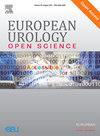毛细管血前列腺特异性抗原检测:PSA-CAP研究
IF 4.5
3区 医学
Q1 UROLOGY & NEPHROLOGY
引用次数: 0
摘要
风险适应性前列腺癌(PC)筛查目前基于前列腺特异性抗原(PSA)检测、风险评估和磁共振成像(MRI)的结合。传统的静脉血取样通常由卫生保健专业人员进行,由于资源有限,这可能会减少未来以人群为基础的筛查计划的参与。PSA- cap研究(NCT06626386)评估了使用指尖毛细血管血与静脉血进行PSA测定的可行性,以方便进行PSA检测。这项前瞻性研究分析了196名年龄在40-75岁之间的男性。使用相同的分析方法从毛细血管和静脉血中测量PSA水平。在室温下保存的样品的稳定性评估超过一周。使用数值疼痛量表评估两种收集方法相关的不适。毛细血管和静脉PSA测量无显著差异。样品在不立即离心的情况下保持稳定达7天。毛细血管(1.52/10)和静脉(1.61/10)的疼痛评分普遍较低,差异无统计学意义(p = 0.27)。4例毛细血管血不足以分析,2例异常值在重新检测后得到解决。毛细管采血是一种可行的替代静脉穿刺PSA测量,提供相同水平的准确性和稳定性,没有不同的不适。这种方法可以提高未来PC筛查项目的参与率。我们研究了一种替代的血液采集方法来测量前列腺特异性抗原水平,这是前列腺癌风险的关键测试,用指尖采样代替静脉血。结果与静脉血采集的结果相当且稳定,舒适度相似。这项技术可以简化未来的前列腺癌筛查程序,并可能导致更高的接受率。本文章由计算机程序翻译,如有差异,请以英文原文为准。
Capillary Blood for Prostate-specific Antigen Testing: The PSA-CAP Study
Risk-adapted prostate cancer (PC) screening is currently based on a combination of prostate-specific antigen (PSA) testing, risk assessment, and magnetic resonance imaging (MRI). Classical venous blood sampling is usually performed by health care professionals, which may reduce participation in future population-based screening programmes due to limited resources. The PSA-CAP study (NCT06626386) evaluated the feasibility of using capillary blood from fingertip sampling compared with venous blood for PSA determination, in order to facilitate access for PSA testing. This prospective study analysed 196 men aged 40–75 yr. PSA levels were measured from both capillary and venous blood using the same analytical method. The stability of samples stored at room temperature was assessed over a week. Discomfort associated with both collection methods was evaluated using a numerical pain scale. No significant differences were found between capillary and venous PSA measurements. Samples remained stable up to 7 d without immediate centrifugation. Pain scores for capillary (1.52/10) and venous (1.61/10) collections were generally low and not significantly different (p = 0.27). Four cases had insufficient capillary blood for an analysis, and two outliers were resolved upon retesting. Capillary blood sampling is a viable alternative to venous puncture for PSA measurement, offering the same level of accuracy and stability with no difference in discomfort. This approach could enhance participation rates in future PC screening programmes.
Patient summary
We studied an alternative method of blood collection to measure prostate-specific antigen level, a key test for prostate cancer risk, using fingertip sampling instead of venous blood. The results were comparable with and as stable as those from venous blood collection, with similar comfort levels. This technique may simplify future prostate cancer screening programmes and could lead to a higher acceptance rate.
求助全文
通过发布文献求助,成功后即可免费获取论文全文。
去求助
来源期刊

European Urology Open Science
UROLOGY & NEPHROLOGY-
CiteScore
3.40
自引率
4.00%
发文量
1183
审稿时长
49 days
 求助内容:
求助内容: 应助结果提醒方式:
应助结果提醒方式:


